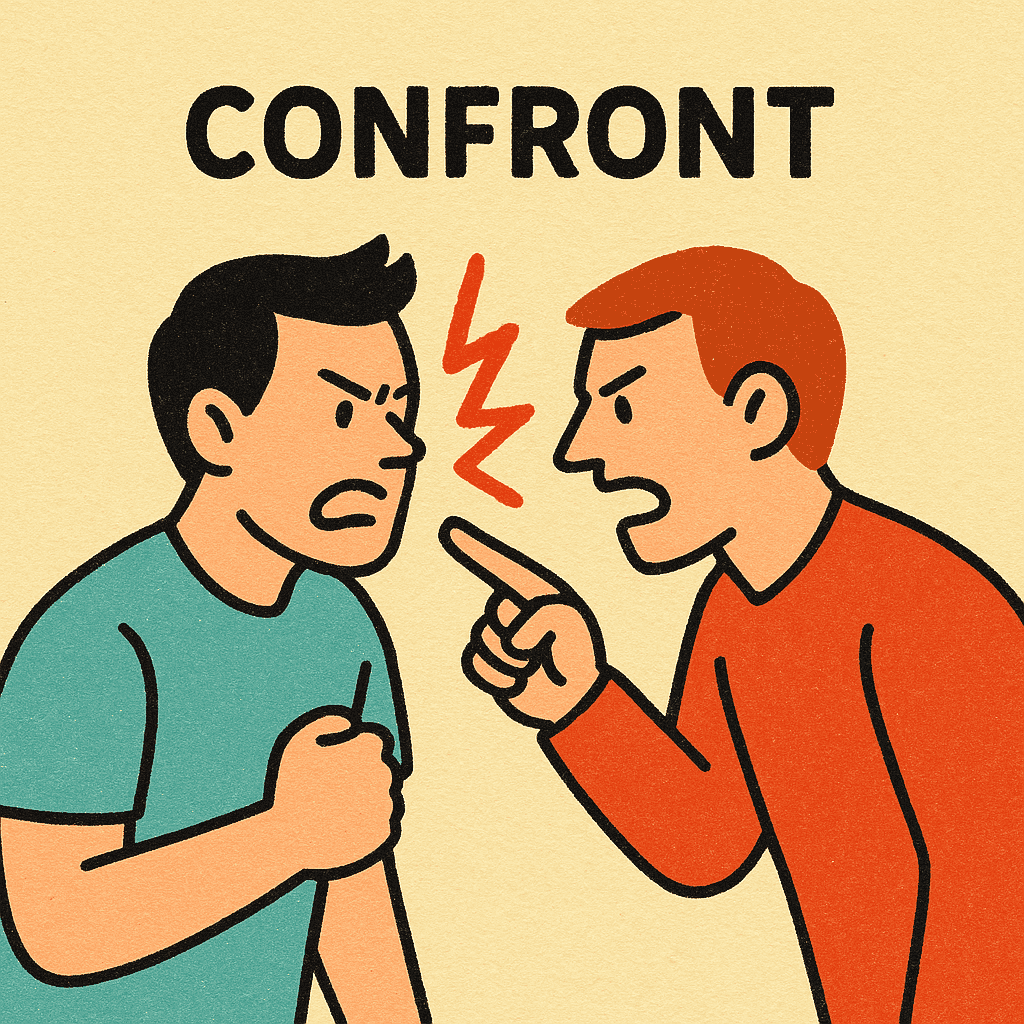Meaning
To confront means to face someone or something directly, especially when dealing with a difficult situation, problem, or person. It often implies bravery, directness, or conflict.
Grammar and Usage
- Part of speech: Verb
- Transitivity: Transitive (requires an object)
Common patterns:
- confront + person / problem / issue → She confronted him about the lie.
- be confronted with + problem / situation → We were confronted with a difficult decision.
Variations:
- confrontation (noun): an act of facing or arguing directly
- confrontational (adjective): tending to cause arguments or conflict
Common Phrases
- confront a challenge – face a difficult task
- confront the truth – accept reality
- be confronted with something – face an unexpected problem
- confront one’s fears – face things that make you afraid
- directly confront someone – address a person without avoiding conflict
Collocations
| Verb + confront | Noun + confront | Adverb + confront |
|---|---|---|
| must confront | problem | directly |
| decide to confront | fear | boldly |
| try to confront | challenge | openly |
Examples
- She confronted her boss about the unfair treatment.
- The country must confront the issue of climate change.
- He confronted his fear of heights by climbing a mountain.
- When confronted with the evidence, he admitted the crime.
- We need to confront our past mistakes in order to move forward.
- Police confronted the protesters outside the building.
- It’s easier to avoid problems than to confront them.
- The teacher confronted the student for cheating on the exam.
- She refused to confront her emotions and kept them inside.
- The government is confronted with rising public criticism.
Synonyms or Related
- face
- tackle
- encounter
- oppose
- challenge
- address
Antonym
- avoid
- evade
- ignore
- sidestep
- escape
